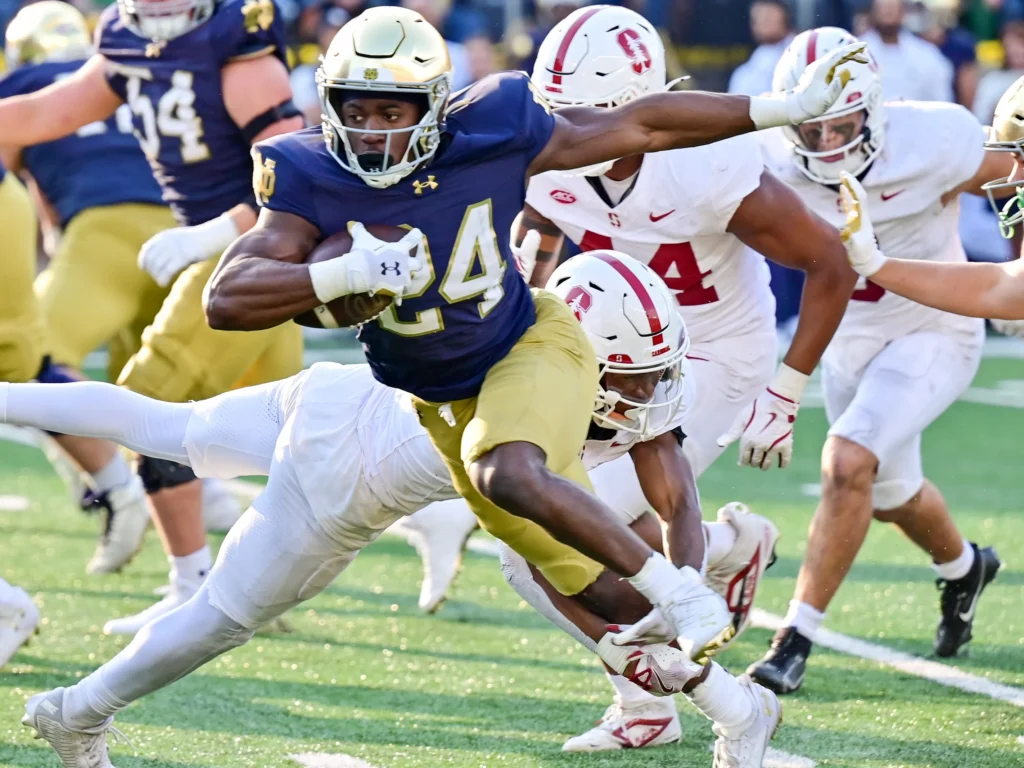The NCAA Football Playoffs are one of the most exciting and anticipated events in college sports. Every year, fans from across the country tune in to watch their favorite college teams compete for the national championship. In this article, we’ll break down everything you need to know about the NCAA Football Playoffs, including how the playoffs work, their history, and what makes this competition so special.
What Are the NCAA Football Playoffs?

The NCAA Football Playoffs, also known as the College Football Playoff (CFP), is the system used to determine the national champion in college football’s top division (FBS). Unlike other sports, which may use a larger playoff bracket, the NCAA football playoffs feature just four teams, chosen by a selection committee based on a range of criteria including win-loss records, strength of schedule, and overall performance.
These four teams are seeded and then play two semifinal games. The winners of those games advance to the National Championship Game, where the winner is crowned the national champion.
The Selection Process
One of the most debated aspects of the NCAA Football Playoffs is the selection process. The College Football Playoff Selection Committee, made up of 13 members, is responsible for selecting and ranking the top four teams. The committee considers several factors:
- Win-Loss Record: Teams with the fewest losses tend to rank higher, though quality wins against strong opponents can boost a team’s standing.
- Strength of Schedule: Teams that have faced tough competition throughout the season may get an edge over those with easier schedules.
- Conference Championships: Winning a conference championship can be a significant factor in a team’s playoff chances.
- Head-to-Head Matchups: If two teams are similar in rankings, a win in a head-to-head matchup between the teams can influence the final decision.
- Eye Test: The committee also watches the games and takes into account how well teams perform on the field.
While this selection process often leads to lively debate among fans, it ensures that the best teams in the country are given the opportunity to compete for the championship.
A Brief History of the NCAA Football Playoffs
The current College Football Playoff system began in 2014, replacing the Bowl Championship Series (BCS), which many fans criticized for relying too heavily on computer rankings and polls. Before the BCS, there was no formal national championship game—teams were crowned champions based on the results of various bowl games and subjective polls.
Since the inception of the College Football Playoff, the national champion has been determined on the field through a four-team tournament. This format has brought more excitement and transparency to college football’s postseason.
Key Milestones in NCAA Football Playoff History
- 2014: The inaugural College Football Playoff featured Alabama, Oregon, Florida State, and Ohio State. Ohio State won the first-ever CFP National Championship.
- 2017: The championship game between Alabama and Clemson set the stage for one of the greatest rivalries in college football history, as these teams have since met multiple times in the playoffs.
- 2021: Alabama became the first team to win multiple College Football Playoff titles, solidifying their status as a dominant force in college football.
The Structure of the Playoffs
The NCAA Football Playoffs consist of two semifinal games and the National Championship Game.
- Semifinals: These games are played at major bowl game sites, such as the Rose Bowl and Sugar Bowl, and take place on New Year’s Eve or New Year’s Day.
- National Championship Game: The winners of the semifinals advance to this game, held about a week after the semifinals. The venue for the National Championship rotates each year, with major cities bidding to host.
Importance of Bowl Games

While the College Football Playoff semifinals and championship are the main focus, many other teams also participate in prestigious bowl games, such as the Orange Bowl and Cotton Bowl. These games remain a significant part of the college football postseason, even though they no longer directly determine the national champion.
Why Are the NCAA Football Playoffs So Special?
The NCAA Football Playoffs bring together the best teams in college football for high-stakes, thrilling matchups. What makes the playoffs so special is that every game matters. College football’s regular season is often referred to as the sport’s de facto playoffs because only a few teams have the chance to make it to the final four. This system ensures that even early-season games can have massive implications on a team’s chances of making the playoffs.
Additionally, the pageantry and tradition of college football make the playoffs particularly exciting. Fans are passionate, teams represent their schools with pride, and the atmosphere around playoff games is electric.
Memorable Playoff Moments
The NCAA Football Playoffs have already delivered numerous unforgettable moments. Some highlights include:
- 2018 Alabama vs. Georgia: In one of the most dramatic championship games ever, Alabama’s backup quarterback Tua Tagovailoa came off the bench to lead a comeback victory in overtime, throwing a game-winning touchdown to seal the title for the Crimson Tide.
- 2019 LSU’s Dominance: Led by Heisman Trophy winner Joe Burrow, the LSU Tigers completed one of the most dominant seasons in college football history, going undefeated and winning the national championship with a convincing victory over Clemson.
The Future of the NCAA Football Playoffs
There has been much speculation about whether the College Football Playoff will expand beyond four teams. Many fans and analysts believe that expanding the field to eight or more teams would create even more excitement and give more schools a chance to compete for a national title. The NCAA has considered expansion, but for now, the four-team format remains in place.
FAQ’s
1. How are teams selected for the NCAA Football Playoffs?
Teams are selected for the NCAA Football Playoffs by a 13-member selection committee. They consider factors such as win-loss records, strength of schedule, head-to-head matchups, and conference championships to choose and rank the top four teams.
2. When do the NCAA Football Playoffs take place?
The NCAA Football Playoffs typically begin with the semifinal games on New Year’s Eve or New Year’s Day. The National Championship Game is held about a week later in early January.
3. How many teams compete in the NCAA Football Playoffs?
The NCAA Football Playoffs feature four teams. These teams are seeded and play in two semifinal games, with the winners advancing to the National Championship Game.
4. What is the difference between the College Football Playoff and Bowl Games?
The College Football Playoff determines the national champion through a four-team tournament, while bowl games are standalone postseason matchups that may not impact the national championship but are still prestigious.
5. Will the NCAA Football Playoffs expand to include more teams?
There has been ongoing discussion about expanding the playoffs beyond four teams, but as of now, no changes have been made. Many fans believe an expanded playoff would allow more schools to compete for a national title.
Final Thoughts
The NCAA Football Playoffs have quickly become one of the most exciting sporting events of the year. With intense competition, passionate fan bases, and unforgettable moments, it’s easy to see why millions of fans tune in every season to watch the best teams in college football battle it out for the national championship. Whether you’re a die-hard fan or a casual viewer, the College Football Playoff is an event that shouldn’t be missed.



